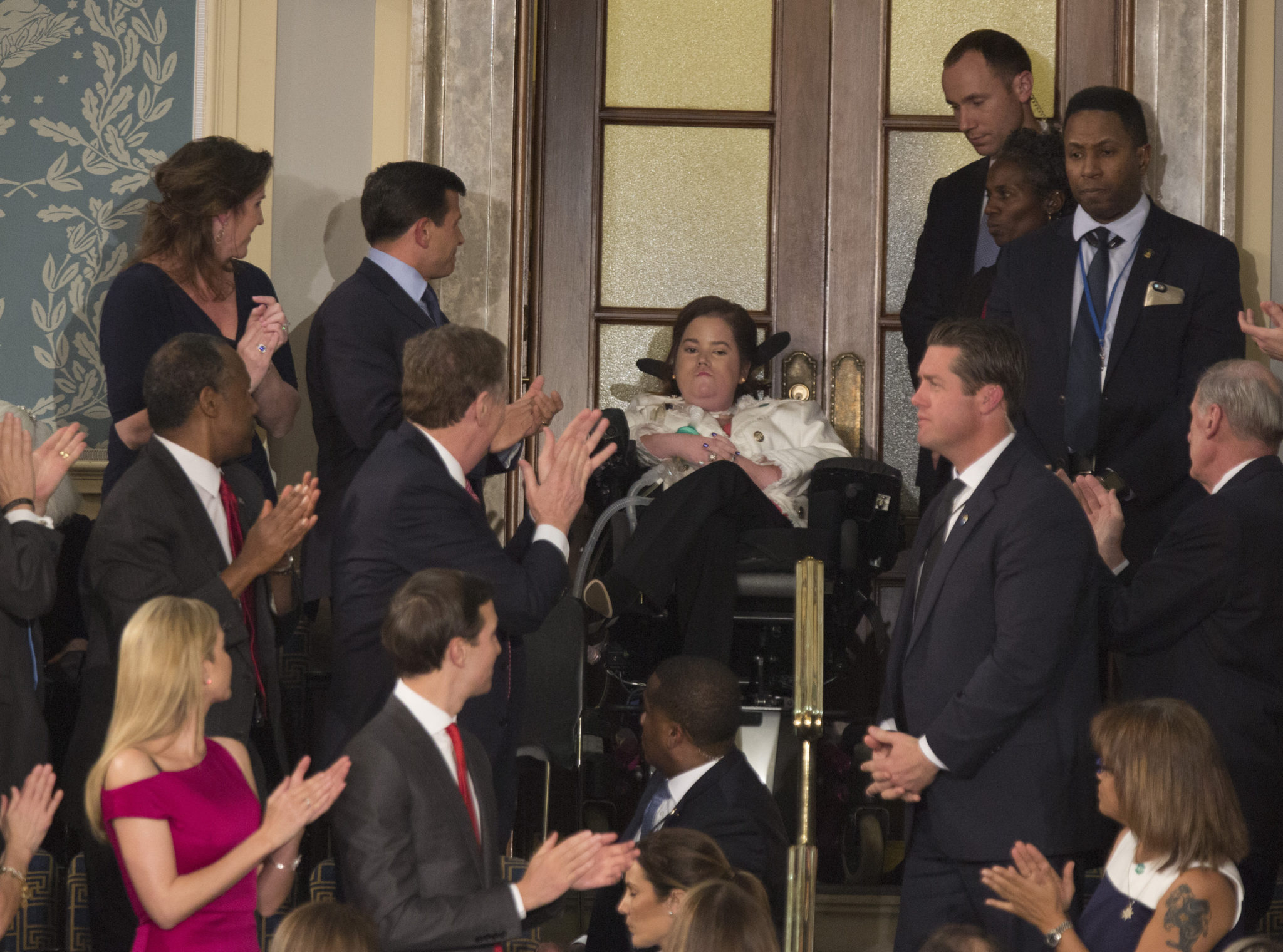
FDA orders a rare retreat on Amicus’ migalastat, dropping PhIII demand and signaling a major shift for drug developers
Megan Crowley is recognized by President Donald Trump during his first address to a joint session of Congress on February 28, 2017. At 15 months old, Crowley was diagnosed with Pompe Disease and not expected to live more than a few short years. AP Images
Amicus Therapeutics $FOLD announced early Tuesday that the FDA has dropped its demand for a new Phase III study of its Fabry disease drug migalastat after it was stiff-armed by unsatisfied regulators last fall — then under a different administration with a different FDA commissioner.
Unlock this article instantly by becoming a free subscriber.
You’ll get access to free articles each month, plus you can customize what newsletters get delivered to your inbox each week, including breaking news.